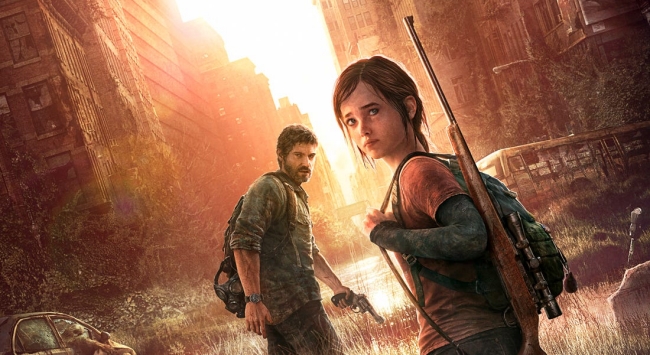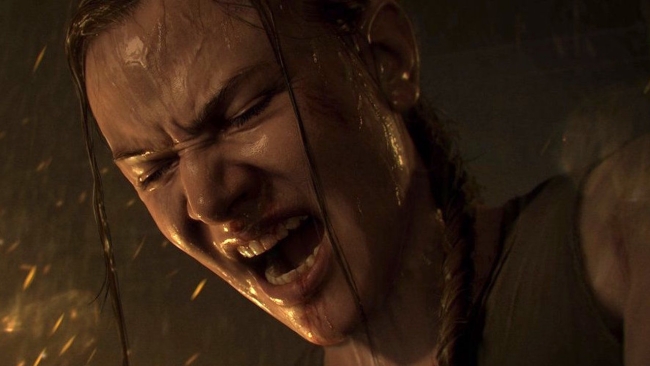The ongoing drama surrounding The Last of Us Part II is overly dramatic at best, foolish at worst. A quick look through many a Twitter thread, online comment section, and the like will show that so-called fans are angry. So angry, in fact, that there’s an online petition for a storyline “remake.” They’re angry at Naughty Dog for “ruining” The Last of Us. They’re angry at writers Neil Druckmann and Halley Gross for their “shitty writing.” And they’re apparently angry at those who don’t agree with them.
It reeks of entitlement, even a refusal to accept change. It reeks of entitled gamers who fail to understand that sometimes tragedies are tragic; sometimes, what’s best for a narrative, what makes the most sense for a narrative, isn’t what the audience wanted. And that’s okay. Whatever happened to the importance of artistic integrity?
Beware: Spoilers for both The Last of Us and The Last of Us Part II follow.

In The Last of Us‘ first chapter, Joel makes a choice that continues to inspire discourse centering on morality. Some consider his saving Ellie, and the damnation of humanity that follows, villainous behavior. Others view him in an anti-heroic light (myself included). Regardless of which side of the aisle you sit, it’s widely accepted that Joel’s decision is disastrous for mankind. With that in mind, how can anyone possibly believe he wouldn’t receive comeuppance of some sort? As Ellie herself notes in Part II, the man crossed too many people. At the end of Part I, he just so happens to cross the wrong person and, depending on who you ask, for an unsavory reason.
Early in Part II, TLoU’s main protagonist dies at the hands of a woman named Abby and a small group of others. Ellie later discovers the why of it all lies in Joel’s actions at the Salt Lake City hospital. Again, he quite possibly destroyed humanity’s last chance at recovering in any meaningful fashion. Ellie knows this, Joel knew this; so, too, do Abby and her cohorts. Surely, gamers recognize just as much. Why the animosity, then? Why the vitriol thrown at cast members and developers? Setting aside unfounded “SJW” arguments, the core cause of disdain seems to rest in how Naughty Dog chose to explore this particular storyline.
The studio didn’t just kill off a beloved character. Players are also forced to assume the role of his murderer for a considerable amount of time. We experience Abby’s perspective just as we experience Ellie’s and previously Joel’s. There are flashbacks to Abby spending time with her late father–the doctor Joel murdered in Salt Lake. Interspersed between segments of Ellie hunting down Joel’s killers are sequences of Abby bonding with those very same individuals. They’re a relatively normal crew of people, soldiers, medical staff–all with hopes, dreams, and character moments that some players may find endearing. Therein lies the problem; nestled within said problem is Naughty Dog’s genius, too.

Since The Last of Us Part II’s announcement at PSX 2016, series co-creator Neil Druckmann has made it clear the sequel’s core theme is hate. But it’s not that simple. Ellie’s hate, and by proxy the player’s, is directed at different entities–chief among them being Abby and Co. When Joel is brutally murdered, Ellie, and probably most players, want nothing more than to bring his killers to justice. They deserve to die for slaughtering her father.
Naughty Dog flips the script, though. In making players see the world through Abby’s eyes, one very simple question arises: Does Joel not deserve to die for slaughtering Abby’s father, too? Isn’t the same hate Ellie feels towards Abby the hate that Abby feels towards Joel? That certainly seems to be the case. As such, is Abby not an anti-hero, as well?
Narratively speaking, the Abby-centric gameplay segments are brilliant framing devices. When has a story in recent memory successfully made you feel nothing but utter contempt for a character, only to then turn it around and possibly have you empathize with said character, and possibly their actions? It’s a device reminiscent of John Milton’s framing of Paradise Lost, whereby in justifying the ways of God to man, Lucifer serves as the central character. We see Lucifer manipulate fellow fallen angels; we follow along as he deftly convinces Eve to eat the Apple of Eden. Yet, there are scholars who argue Lucifer’s the hero of Paradise Lost. (He’s not.) There are gamers who now love Abby just as much as they love Ellie. Just as much as they love Joel.
Did Naughty Dog “betray fans,” then, or did the team force players to think beyond the superficial lens that divides genre characters into good/evil, hero/villain? Nathan Drake is heroic, of that there’s no argument. Lazarevic is villainous, no questions asked. Ask someone if Joel is villainous or heroic; do the same for Ellie, taking into account her actions throughout Part II. Ask yourself the same of Abby. You can’t put them in a box. Each of these three are tragic figures, complex and fully fleshed out. In a story like The Last of Us, there exists no room for binary thinking; the narrative is meant to reflect the dreariness of humanity. It’s why the franchise works. It’s probably why so many people gravitate towards it, typical gamers and newcomers to the medium alike.
But disagreeing with the final product gives no “fan” the right to contest its worth. Making petitions and harassing those who were simply doing their jobs serves no one, especially not the characters we love nor the folks responsible for their creation. Naughty Dog didn’t betray anyone. Druckmann and Gross had an artistic vision, a bold and daring one. It upset lots of fans, quite a number of whom have yet to even play the sequel. As the years wear on, it’s bound to upset countless others. That’s fine. It’s a story–Naughty Dog’s story. The studio wanted to challenge storytelling conventions and gamers’ perception of those conventions. Inarguably, Naughty Dog succeeded.








